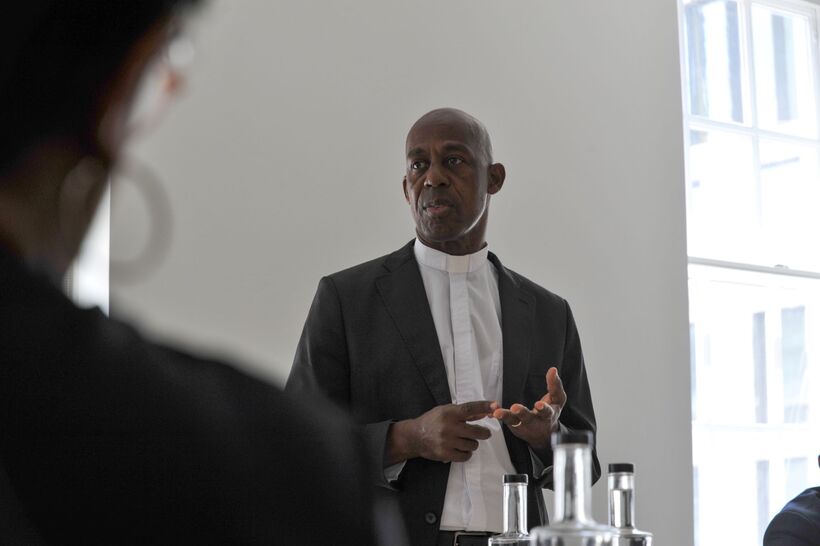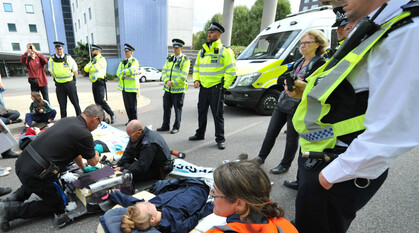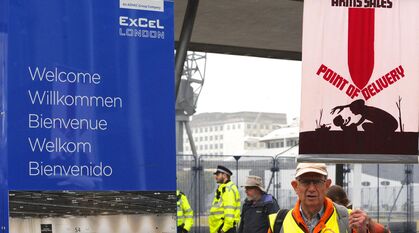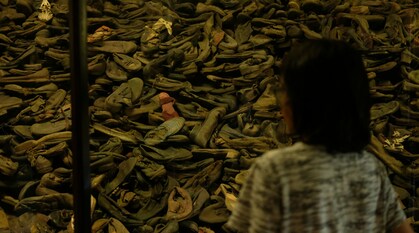Reparations: addressing harm and restoring right relationships
As Quakers consider next steps on reparations, Ginny Baumann of Streatham and Brixton Meeting suggests we address the harms we have inherited alongside working to be 'good ancestors' on the decisive issue for our times: climate justice.

For Friends, can the issue of reparations become a spark, energising, and resourcing all the efforts towards the world we desperately want? Is that the hope that we got a glimmering of in Yearly Meeting 2022? Then, we acknowledged some bitter truths, some unwelcome facts, but I think that when we put our truths together in a space of love and grace, it can be a relief, it can be freeing, and it can propel us forward. This is because, between us, we know we can do something about it.
At Yearly Meeting 2022, Friends committed to take action with regard to the harms of the transatlantic slave trade, colonialism, and economic exploitation. We did not try to spell out what reparations might look like. Since then, some meetings, individual friends and Quaker bodies such as Friends World Committee for Consultation are giving this careful consideration. There's a Britain Yearly Meeting webpage on reparations with a great range of background materials, and BYM Trustees are preparing options for discernment about the ways we work, and our institutional resources.
Examining our resources
As I tried to figure out where we are going with this, I put together a note looking at several questions (Word):
- What exactly are we recognising and acknowledging (the scope)?
- What is the link between our recognition of what has happened and our sense of accountability?
- What is our practical response going to be and what kind of activities might be involved?
- How do we begin to quantify a meaningful scale of change and reparations, without treating this as a debt that we can somehow 'settle'?
- What are the qualities and spirit that we bring to this effort?
In terms of what it is that we are recognising:
- We know that there are profits from the slave trade that have fed into our Quaker institutional assets. So how do we turn those resources around, getting them back to where they can be used by those affected, tackling injustice?
- We know that we exist in a context of racialised and divisive privilege, within an economy rooted in exploitation. Racism and colonialism have been present in our perspectives, relationships, and communities. At the same time, that 'privilege' affects us differently – many other structural inequities intersect, meaning that some Friends' lives and livelihoods are a struggle.
- We know that – inseparable from these very same injustices and systemic privilege – even in our own lifetimes, the loss and damage of climate crisis continues to build up. What we do in this decade and the next will affect sheer survival for a large proportion of living beings for millennia. Already, the traumatic journeys of refugees, violently turned back from our shores, are increasingly triggered by climate injustice. How can our reparations put resources and energy into redressing this?
Discerning the way forward
Across history, reparations have taken many different forms: aiming to repair what has happened, seeking to restore right relationships, and doing it in ways that are substantial, involving redistribution of wealth that was accumulated through violence and abuse. An important part of reparations is making sure that, in future, we stop repeating the same kinds of harms.
For Friends, our actions can join us with non-Quakers who are on a similar path. We can take guidance from the most affected people and communities, putting resources back into their hands. While we learn more about the systems of racialised privilege, our actions could be targeted to issues and locations that redress the legacy of the slave trade and colonialism. In practice, reparations may be a mixture of individual steps, as well as local collective actions linked together across BYM, and actions that we request from our Quaker national representatives.
Addressing ongoing harm
Focusing on stopping a repetition of past injustices, this work might significantly expand and deepen work for climate justice, such as:
- Support for local movements in the places most vulnerable to the climate crisis, as they organise activities for adaptation and mitigation.
- Building up our advocacy for UK policies that invest in new energy sources in poorer countries and in climate-resilient food production – advocating for the required scale of support for the international Loss and Damage fund, agreed (with QUNO inputs) at COP27.
- Advocating for the UK to help create an international system for sharing responsibility for welcoming millions of climate and conflict refugees – a fair system based on historic responsibility and colonial linkages, and each country's wealth and capacity.
- Activities to prevent the UK's financial institutions investing in and underwriting high carbon developments.
- Supporting work to reduce our country's carbon footprint radically, including rationing/taxing high carbon products both at household and industry level, and preventing new permits for fossil fuels.
Following love and truth
As we work on these and other aspects of reparations, our worship helps us persist in following the love and the truth, renewing our desire and our discomfort. It can help us make costly personal and collective decisions. As we move ahead, there are huge difficulties, there is resistance, anger and failure, but the efforts people are making are spirit-filled, and they make a difference.


